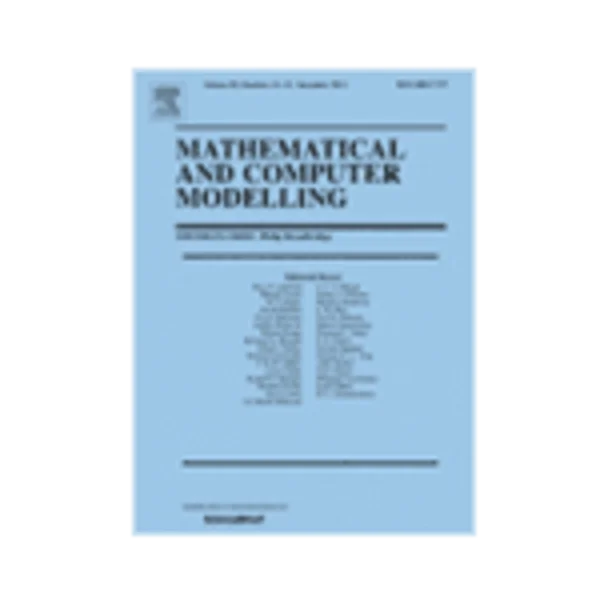-
analyzing the effect of imperfect debugging on software fault detection and correction processes via a simulation framework
جزئیات بیشتر مقاله- تاریخ ارائه: 1392/07/24
- تاریخ انتشار در تی پی بین: 1392/07/24
- تعداد بازدید: 1087
- تعداد پرسش و پاسخ ها: 0
- شماره تماس دبیرخانه رویداد: -
during a debugging operation, there is a high probability that an additional fault will be introduced into the program when removing an existing fault. thus, perfect debugging is an ideal but impractical assumption when modeling software reliability. if the debugging of a software system is imperfect, more faults may be introduced and detected. in such cases, it may be necessary to add more staff to the debugging team to share the load and ensure the quality of the software. to investigate the effects of imperfect debugging, we simulate the fault detection and correction processes by a single-queue multichannel queuing model with feedback. in this paper, two debugging procedures are discussed. the first, calledprocedure_perfect_debugging, is based on a single-queue multichannel queuing model and deals with the case of perfect debugging. then, we relax the restriction on perfect debugging, and further proposeprocedure_imperfect_ debugging based on a queuing model with feedback to address the case of imperfect debugging. we demonstrate the implementation of the procedures via two case studies in which we quantify the effects of imperfect debugging in terms of throughput, time consumption, and debugger utilization. finally, based on the measurement results, we determine the most suitable staffing level (i.e., the number of debuggers required) for a debugging system under different degrees of imperfect debugging.
مقالات جدیدترین رویدادها
-
استفاده از تحلیل اهمیت-عملکرد در ارائه الگوی مدیریت خلاقیت سازمانی و ارائه راهکار جهت بهبود
-
بررسی تاثیر ارزش وجوه نقد مازاد بر ساختار سرمایه شرکت های پذیرفته شده در بورس اوراق بهادار تهران
-
بررسی تأثیر سطح افشای ریسک بر قرارداد بدهی شرکت های پذیرفته شده در بورس اوراق بهادار تهران
-
بررسی تأثیر رتبه بندی اعتباری مبتنی بر مدل امتیاز بازار نوظهور بر نقد شوندگی سهام با تأکید بر خصوصی سازی شرکت ها
-
تأثیر آمیخته بازاریابی پوشاک ایرانی بر تصویر ذهنی مشتری پوشاک ایرانی (هاکوپیان)
-
مقایسه دو سیستم خطوط وسائل نقلیه با ظرفیت بالا h.o.v برگشت پذیر و هم جهت در بزرگراه ها- مطالعه موردی بزرگراه شهید همت تهران
-
بررسی اثر وجود و یا عدم وجود ساختار بر روی رفتار تراکم پذیری خاک های سیمانی شده مصنوعی با توجه به افزایش درصد متفاوت سیمان
-
نقش و جایگاه خلاقیت در طراحی فضاهای عمومی مورد مطالعه: بوستان آب و آتش
-
electrophoresis of a spherical particle in a spherical cavity
-
on the effect of turbulent intensity towards the accuracy of the zero-equation turbulence model for indoor airflow application
مقالات جدیدترین ژورنال ها
-
مدیریت و بررسی افسردگی دانش آموزان دختر مقطع متوسطه دوم در دروان کرونا در شهرستان دزفول
-
مدیریت و بررسی خرد سیاسی در اندیشه ی فردوسی در ادب ایران
-
واکاوی و مدیریت توصیفی قلمدان(جاکلیدی)ضریح در موزه آستان قدس رضوی
-
بررسی تاثیر خلاقیت، دانش و انگیزه کارکنان بر پیشنهادات نوآورانه کارکنان ( مورد مطالعه: هتل های 3 و 4 ستاره استان کرمان)
-
بررسی تاثیر کیفیت سیستم های اطلاعاتی بر تصمیم گیری موفق در شرکتهای تولیدی استان اصفهان (مورد مطالعه: مدیران شرکتهای تولیدی استان اصفهان)
-
امکان سنجی بلاک چین در برنامه ریزی و مدیریت پروژه
-
نقش شخصیت بزهکار و روش برخورد تربیتی درخور با شخصیت مجرم از دیدگاه آموزه های اسلام
-
فرازمندی دیوان سالاری در تمدن اسلامی و نقش دبیران ایرانی (با تاکید بر قرون نخست هجری)
-
بررسی تاثیر فرهنگ معنوی بر مسئولیت اجتماعی با نقش میانجی سرمایه اجتماعی کارکنان درمان بیمارستان های دولتی شهر تهران
-
نقش ادراک کارکنان از حمایت سازمانی در توسعه نوآوری سازمانی- مطالعه موردی: شعب بانک سپه استان فارس




سوال خود را در مورد این مقاله مطرح نمایید :